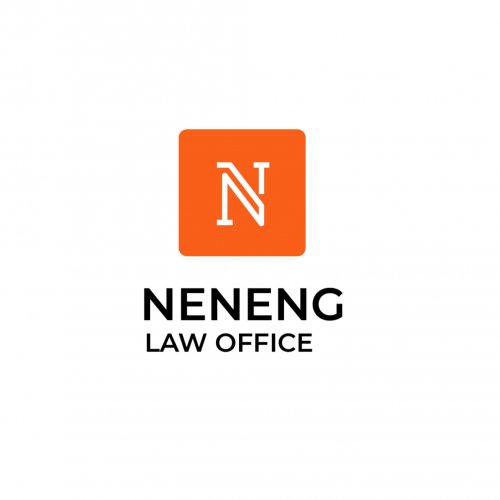Best Housing, Construction & Development Lawyers in Cameroon
Share your needs with us, get contacted by law firms.
Free. Takes 2 min.
Free Guide to Hiring a Real Estate Lawyer
Or refine your search by selecting a city:
List of the best lawyers in Cameroon
Legal guides written by CHI & Partners Law Firm:
- Ship Registration in Cameroon
About Housing, Construction & Development Law in Cameroon:
In Cameroon, the field of Housing, Construction & Development is governed by a body of legal framework that covers everything from land acquisition, building regulations, to property ownership, and housing rights. The laws are designed to regulate the urban and rural development, construction, and real estate sector for a harmonious and sustainable use of land resources. Despite the extensive legal framework, challenges persist, and it is advisable to seek professional legal help when dealing with matters in this field.
Why You May Need a Lawyer:
Legal advice is essential when engaging in property development, construction, and housing transactions in Cameroon. There are many situations where a lawyer's input could be beneficial. If you're acquiring land, a lawyer can help avoid disputes and ensure your purchase is legally valid. For property developers and construction companies, legal counsel ensures compliance with regulations and standards, manages contractual relationships, and helps handle disputes. Property owners or those seeking to buy, sell or lease real estate would also benefit from a lawyer's assistance to understand contracts and deal with issues such as eviction, housing discrimination, and breaches of agreement.
Local Laws Overview:
The Cameroonian law framework concerning Housing, Construction & Development includes the Land Tenure law, Construction Permit law, and numerous housing regulations. The Land Tenure law covers the acquisition, ownership, usage, and disputes of land property. The Construction Permit law dictates the procedures and requirements on securing construction and development permits, specifically focusing on safety, environment, and cultural preservation standards. Finally, there's a host of housing laws protecting the rights and interests of homeowners, landlords, and tenants, covering areas like rent control, eviction regulations, and housing discrimination.
Frequently Asked Questions:
1. How do I legally acquire land in Cameroon?
Acquiring land involves multiple steps including location and verification of the land, negotiation with the owner, drafting and signing of sales agreement, and registration of the land under the buyer's name. Throughout this process, it is advised to have a lawyer to help navigate the legal complexities and ensure the legality of the transaction.
2. What type of legal problems might I encounter during a construction project?
Legal issues might arise concerning permits, compliance with safety and environmental regulations, breach of contract, disputes with contractors or workers, and unexpected incidents causing damage or delays.
3. Can I be evicted from my rented home without notice?
No, the law protects tenants from arbitrary eviction. A landlord must give a notice and valid reason for eviction, such as breach of contract or failure to pay rent. A lawyer can help understand your rights and possible defenses.
4. What should I look out for in a house purchase agreement?
Pay attention to terms about the price, payment method, property condition, included assets, closing process, and possible liabilities. Legal counsel should review the agreement to ensure your rights and interests are protected.
5. Can I undertake a construction project anywhere in Cameroon?
No, all construction projects must obey zoning regulations and may require permits. Violating these can lead to penalties or halts the development. Legal advice can ensure you comply with all relevant rules.
6. What can I do if my neighbor constructs a building that affects my property?
If your neighbor's construction infringes on your property rights or negatively affects your property, you can seek legal remedy such as injunctions or damages. Consult a lawyer for the best course of action.
7. What fees are involved in real estate transactions?
Fees can include agency fees, legal fees, registration fees, notary fees, and taxes. It is best to have a lawyer who can provide a detailed breakdown and ensure all fees are properly addressed.
8. Can I lease my property in Cameroon to foreigners?
Yes, foreigners can legally lease property in Cameroon. However, specific conditions may apply, so it's advisable to seek legal advice.
9. What can I do if a tenant refuses to pay rent?
The law provides remedies for landlords in case of non-payment of rent. These can include eviction and seeking damages. A lawyer can provide the right strategy to handle this situation.
10. How can I ensure my construction project is environmentally friendly?
There are numerous environmental laws and guidelines for construction projects. Legal counsel can ensure your project meets these requirements, helping you avoid penalties and contribute to sustainability.
Additional Resources:
Consider referring to government bodies such as the Ministry of Housing and Urban Development, the Ministry of Environment, and local authorities for official information and services. Various non-profit organizations work on housing rights and development issues, providing resources and advice.
Next Steps:
If you need legal assistance in Housing, Construction & Development, consider getting a lawyer who specializes in this field. They can provide comprehensive advice, guide you through procedures, and represent your interests in disputes and negotiations. Remember to check their credentials and experience, as well as their understanding of local Cameroonian law.
Lawzana helps you find the best lawyers and law firms in Cameroon through a curated and pre-screened list of qualified legal professionals. Our platform offers rankings and detailed profiles of attorneys and law firms, allowing you to compare based on practice areas, including Housing, Construction & Development, experience, and client feedback.
Each profile includes a description of the firm's areas of practice, client reviews, team members and partners, year of establishment, spoken languages, office locations, contact information, social media presence, and any published articles or resources. Most firms on our platform speak English and are experienced in both local and international legal matters.
Get a quote from top-rated law firms in Cameroon — quickly, securely, and without unnecessary hassle.
Disclaimer:
The information provided on this page is for general informational purposes only and does not constitute legal advice. While we strive to ensure the accuracy and relevance of the content, legal information may change over time, and interpretations of the law can vary. You should always consult with a qualified legal professional for advice specific to your situation.
We disclaim all liability for actions taken or not taken based on the content of this page. If you believe any information is incorrect or outdated, please contact us, and we will review and update it where appropriate.
Browse housing, construction & development law firms by city in Cameroon
Refine your search by selecting a city.













